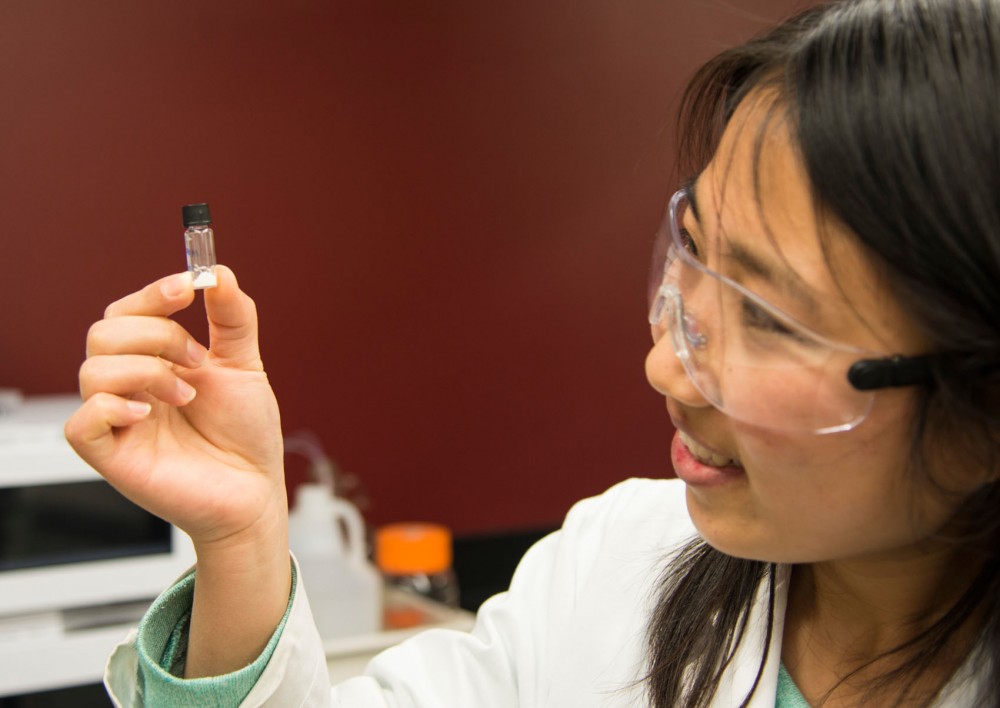A University of Minnesota study released late last month found a way to turn crops into fuel faster.
But just days after the University published its study, an environmental think-tank unveiled a report suggesting that using crops for fuel rather than food isn’t a sustainable practice.
Using one of the world’s fastest supercomputers, University researchers identified potential properties of materials called zeolites, which filter water out of fuels like ethanol. Previously, the filtering process took multiple steps and now takes only one.
Related: University researchers look at future of biofuels
The team used a supercomputer at Argonne National Laboratory in Illinois with about 800,000 processors to predict how the zeolite would interact with other compounds. The computations it performed would have taken 10 million hours on a computer with a single processor, said Ilja Siepmann, lead researcher and chemical engineering professor.
The identification will also make biofuels less costly to produce.
The University has filed two patents on the research, Siepmann said, but it can take more than 10 years for discoveries like this to have practical applications.
“The only thing we can say is this has great potential,” Siepmann said.
However, a report from the World Resources Institute late last month suggests that the crops should be used to fill the growing need for food rather than to produce fuel.
The land required to grow crops for fuel production isn’t sustainable in light of a projected 70 percent gap between the amount of food that will likely be needed by 2050 and current production.
Tim Searchinger, a senior fellow at the WRI and co-author of the study, said because it takes so many crops to make bioenergy, the practice is wasteful.
“It takes a huge amount of biomass to create a small amount of energy,” he said.
Related: Researchers work fill biofuel gap
Using fertile land for growing crops for human consumption and using infertile land for solar panels or windmills would be more sustainable, Searchinger said.
But Chad Friese, CEO of Minnesota-based Chippewa Valley Ethanol Company, said there’s enough food production; however, it’s just not distributed well enough across the world.
“Hopefully by [2050] we’ve done more with other energies such as wind and water and solar,” he said.
But an even-global food distribution isn’t feasible, Searchinger said. If all Americans were willing to eat like the poorest people in the world, the food gap could be reduced, he said.
Mike Jerke, CEO of Guardian Energy, said first-generation biofuels — fuels made from crops like corn and sugarcane — are still useful.
“People tend to think of biofuels as a thing of the past,” he said.
There’s always unused material involved in processing crops for food or fuel, Siepmann said, but reducing the amount of unused material in plants could help lower wasted energy.
“If you can do it with stuff that would be wasted, then you’re just using the inedible part, and the [WRI’s] argument is not valid,” he said.


